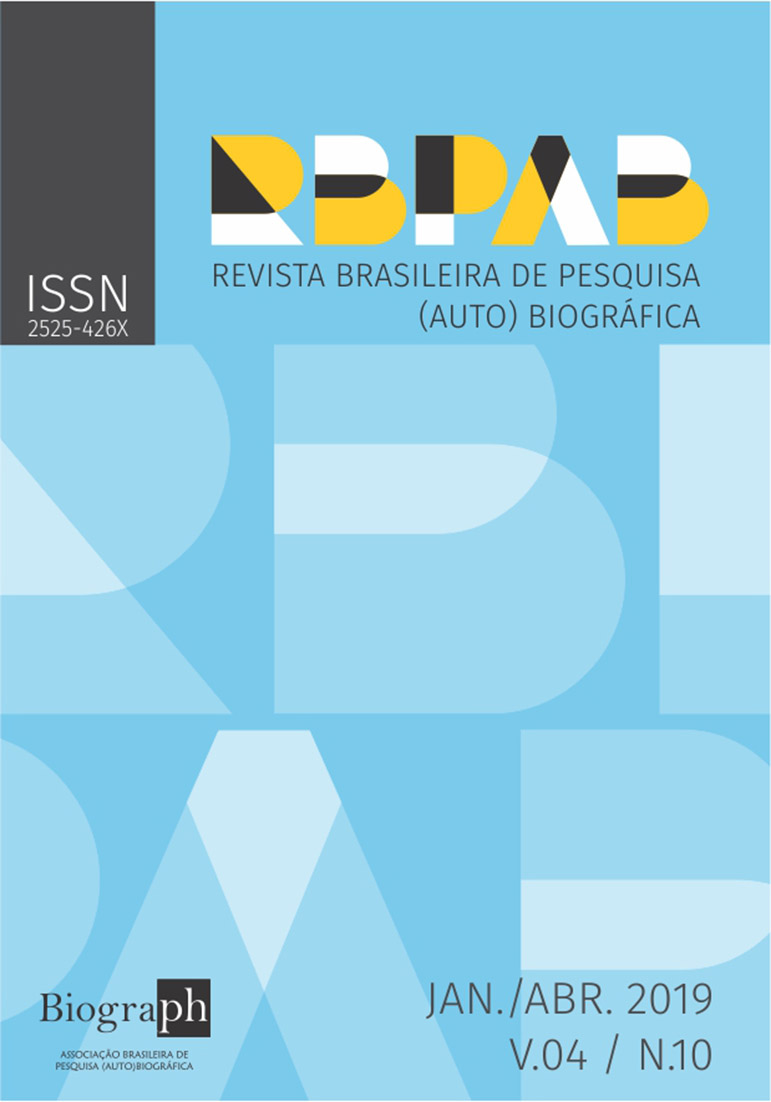Toward an empathetic understanding of scholarship
DOI :
https://doi.org/10.31892/rbpab2525-426X.2019.v4.n10.p68-79Mots-clés :
Autobiography, Teaching, EmpathyRésumé
In this paper I take an autobiographical stance on knowledge production in the field of Mathematics Education, acknowledging forms of academic and racial privilege. I use my experiences as a backdrop by which to project a more empathetic approach to scholarship in mathematics education. Using the framework of rough draft thinking (JANSEN et al., 2015), I expose the contradictions in what we believe to be true about the acquisition and generation of mathematical and pedagogical knowledge, and the structures of scholarship in mathematics education. I make three recommendations: 1. address the need for rough draft spaces within the existing structure of academia; 2. we should reimagine our roles within the peer-review system; and 3. we need to adopt more empathetic methodologies that allow human voices to be centered in our scholarship without reduction or interpretation. It is no longer acceptable to believe that the gaze and interpretation of an objective researcher is as valid as the first-hand perspective of participants.
Téléchargements
Références
COX, D. C. Repositioning Ourselves: Acknowledging contradiction. Bolema: Boletim de Educação Matemática, Rio Claro, SP, v. 28, n. 49, p. 990-1011, ago. 2014.
CLANDININ, J.; CONNELLY, M. Narrative Inquiry: Experience and story in qualitative research. California: Jossey-Bass, 2000.
D’AMBROSIO, U. From Mathematics Education and Society to Mathematics Education and a sustainable civilization: a threat, an appeal, and a proposal. In: MUKHOPADHYAY, S.; GREER, B. (Eds.). PROCEEDINGS OF THE EIGHTH INTERNATIONAL MATHEMATICS EDUCATION AND SOCIETY CONFERENCE, 8., 2015, Portland (OR). Anais... Portland (OR): Ooligan Press; Portland State University, 2015. p. 19-30.
D’AMBROSIO, B. S.; COX, D. C. An Examination of Current Methodologies in Mathematics Education Through the Lenses of Purpose, Participation, and Privilege. Revista Perspectivas da Educação Matemática, v. 8, n. 18, p. 687-708, ago. 2015a.
D’AMBROSIO, B. S.; COX, D. C. Learning to Lead. In: BARTELL, T. G., BIEDA, K. N., PUTNAM, R. T., BRADFIELD, K.; DOMINGUEZ, H. (Eds.). Proceedings of the 37th annual meeting of the North American Chapter of the International Group for the Psychology of Mathematics Education. East Lansing, MI: Michigan State University, 2015b. p. 640-646.
D’AMBROSIO, B. S.; LOPES, C. E. Creative Insubordination: an invitation to reinvent the mathematics educator. Bolema: Boletim de Educação Matemática, v. 29, n. 51, p. 1-17, 2015.
ELBOW, P. The believing game or methodological believing. JAEPL: The Journal of the Assembly for Expanded Perspectives on Learning, v. 14, p. 1-11, Winter 2008-2009.
ELLIS, C.; BOCHNER A. P. Autoethnography, personal narrative, reflexivity: Researcher as subject. In: DENZIN, K.; LINCOLN, Y. S. (Eds.). Handbook of qualitative research. Thousand Oaks, CA: Sage Publications, 2000. p. 733-768.
FAGEN, A. P.; SUEDKAMP WELLS, K. M. The 2000 national doctoral program survey: An on-line study of students’ voices. In: WULFF D. H.; AUSTIN, A. E. (Eds.). Paths to the professoriate: Strategies for enriching the preparation of future faculty. San Francisco, CA: Jossey-Bass, 2004. p. 74-91.
HARKNESS, S. S. Social constructivism and the Believing Game: a mathematics teacher’s practice and its implications. Educational Studies in Mathematics, v. 70, n. 3, p. 243-258, 2009.
JANSEN, A., COOPER, B., VASCELLARO, S.; WANDLESS, P. Rough-Draft Talk in Mathematics Classrooms. Mathematics Teaching in the Middle School, v. 22, n. 5, p. 304-307, 2017.
LaBOSKEY, V. K. The methodology of self-study and its theoretical underpinnings. In: LOUGHRAN, J.; HAMILTON, M. L.; LaBOSKY, V. K.; RUSSELL T. (Eds.). International handbook of self-study of teaching and teacher education practices. Dordrecht, The Netherlands: Springer, 2004. p. 817-869.
LOPES, C. E.; D’AMBROSIO, B. S. Professional development shaping teacher agency and creative insubordination. Ciência & Educação, Bauru, v. 22, n. 4, p. 1085-1095, 2016.
MARTIN, D. B. Race, racial projects, and mathematics education. Journal for Research in Mathematics Education, v. 44, n. 1, p. 316-333, 2013.
KOELLNER, K; JACOBS, J.; BORKO, H. Mathematics Professional Development: Critical Features for Developing Leadership Skills and Building Teachers’ Capacity. Mathematics teacher education and development, v. 13, n. 1, p. 115-136, 2011.
SCHLOSSER, L. Z.; KNOX, S.; MOSKOVITZ, A. R.; HILL, C. E. A qualitative examination of graduate advising relationships: The advisee perspective. Journal of Counseling Psychology, v. 50, n. 2, p. 178-192, 2003.
STEPHENS-DAVIDOWITZ, S. Everybody lies: Big data, new data, and what the internet can tell us about who we really are. New York: Harper Collins, 2017.
WAGNER, J. Ignorance in educational research or, how can you not know that? Educational Researcher, v. 22, n. 5, p. 15-23, 1993.
WHITEHEAD, J. Creating a living educational theory from questions of the kind, “How do I improve my practice?”. Cambridge Journal of Education, Cambridge, v. 19, n. 1, p. 41-52, 1989.













































